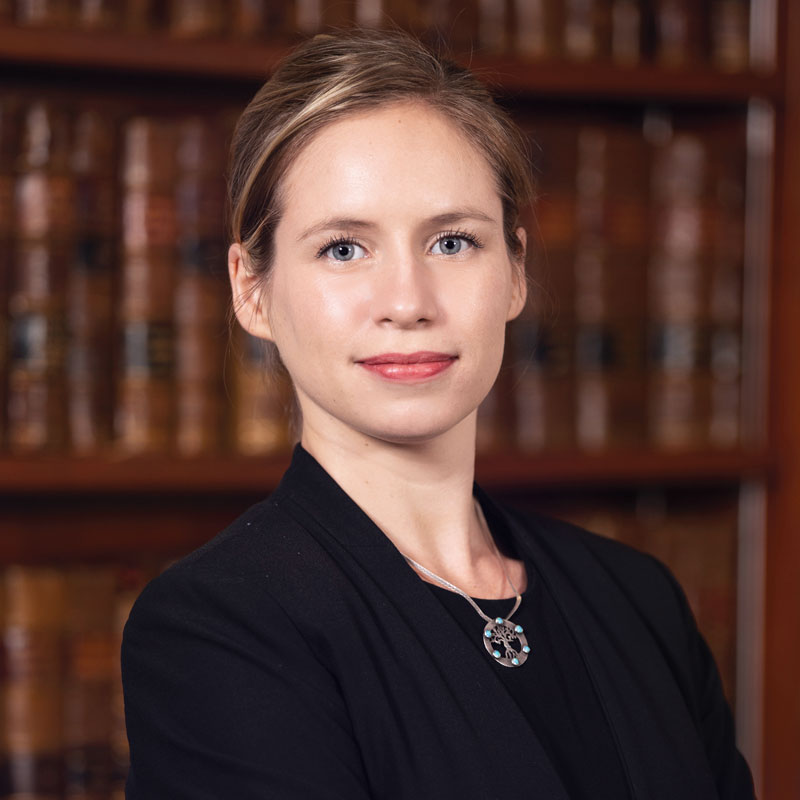TKY v YSGA [2025] 1 HKLRD 977, [2024] HKCA 1197 (Madeleine Booth)
Madeleine Booth represented the respondent in TKY v YSGA [2025] 1 HKLRD 977, [2024] HKCA 1197.
On 7 September 2023, the Family Court made two orders in favour of W. One was an interim maintenance order for the children. The other was a legal costs provision order (the LCP Order) under which H was ordered to pay to W $1.2 million by way of 12 monthly instalments of $100,000 each on the first day of every month from 1 October 2023 to 1 September 2024. H applied to the Judge for leave to appeal against the LCP Order. The Judge refused leave. H then went to the Court of Appeal for leave. He also took out before them an application for a stay of the LCP Order and an application to adduce fresh evidence on appeal. They granted him leave on two of the four grounds of appeal set out in his draft notice of appeal, ordered that the LCP Order be stayed upon the filing of his notice of appeal, and left his application to adduce fresh evidence on appeal to be dealt along with the appeal itself. The two grounds on which the Court of Appeal refused leave related to: (i) financial assistance from H’s family; and (ii) his ability to pay. Of the two grounds on which leave was granted, Ground 1 was that the Judge failed to take into account: (i) that W had financial resources of her own; and (ii) that there was material non-disclosure on her part. Ground 2 concerned the quantum of the LCP Order. The fresh evidence proffered consisted of: (i) correspondence between the parties’ solicitors in regard to a bank account in W’s name and a property registered in her name; and (ii) a letter to H from his parents refusing his request for a loan to make LCP for W.
Held, refusing to receive the letter from H’s parents as fresh evidence on appeal, receiving the correspondence between the parties’ solicitors as fresh evidence on appeal, allowing the appeal so as to (i) set aside the LCP Order and (ii) remit W’s application for LCP to the Family Court for a rehearing before another judge, that:
Application to adduce fresh evidence
- (1) The letter from H’s parents failed at the first Ladd v Marshall condition because it had not been shown that H would not have been able to ascertain his parents’ intention at the first instance stage. Accordingly, it would not be received as fresh evidence on appeal (Ladd v Marshall [1954] 1 WLR 1489 applied). (See paras.30-31.)
- (2) But the correspondence between the parties’ solicitors would be received as fresh evidence on appeal, having come about after the first instance hearing, and being directly relevant to W’s application for LCP and in turn the appeal. (See para.69.)
Appeal against LCP Order
- (3) In an LCP application, the overarching question was whether the applicant had demonstrated that she or he could not reasonably procure legal advice and representation by any means other than an LCP. The applicant had to demonstrate three things to the court’s satisfaction. Of these, the first was lack of any assets that could reasonably be deployed, whether directly or as a means of raising a loan, to fund legal services. The second was inability reasonably to procure legal services by offering a charge upon capital ultimately recovered. And the third was lack of any public funding to furnish her or him with legal advice and representation at a level of expertise appropriate to the proceedings (Currey v Currey [2007] 1 FLR 946 applied). (See para.34.)
- (4) Ground 1 succeeded. By reason of: (i) the Judge’s errors in his findings on W’s monthly expenses; and (ii) the absence of complete updated banks statements and supporting documentary evidence on W’s financial resources, the LCP Order could not be supported and should be set aside (Currey v Currey [2007] 1 FLR 946, HJFG v KCY (Maintenance Pending Suit) [2012] HKFLR 27 applied). (See paras.62-63.)
- (5) On Ground 2, the position was as follows. In light of events which had happened since the LCP Order was made, it would appear that W no longer proposed to make certain interlocutory applications which she had earlier intended to make, and was ready to proceed to the financial dispute resolution (FDR) hearing. In these circumstances, the $1.2 million ordered by the Judge for the costs up to the FDR stage was no longer an appropriate sum. (See para.67.)
- (6) The FDR stage having been reached and the parties’ financial information being now more than two years out of date, the Court of Appeal was in no position to deal with the LCP application by themselves, and the appropriate course was to remit it to the Family Court for a rehearing before another judge. (See para.68.)
[The above is excerpted from the headnote to the report in HKLRD.]


